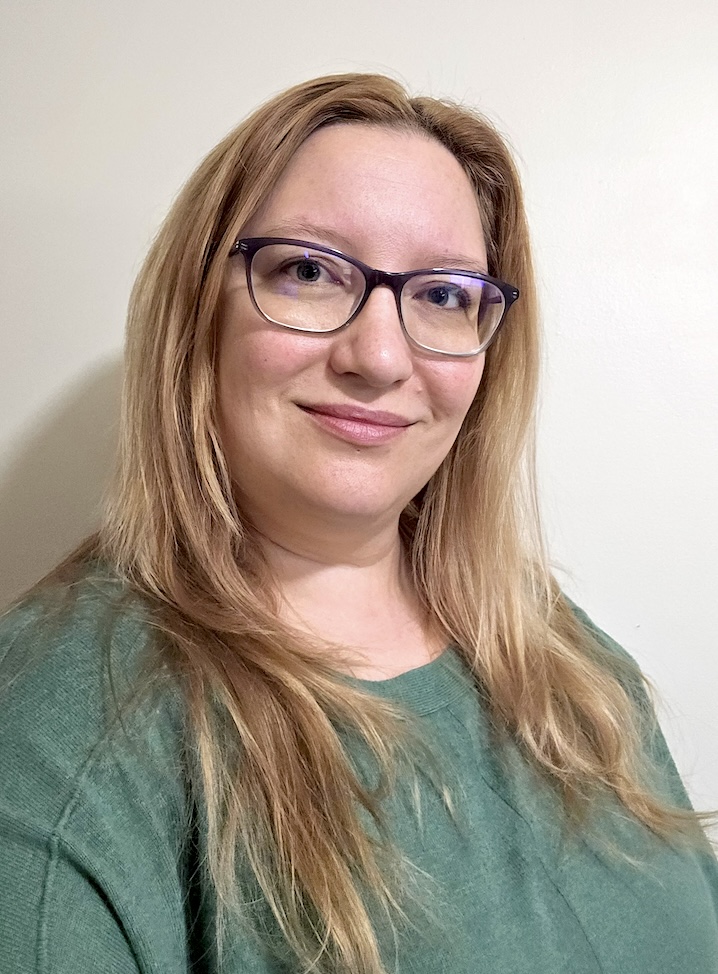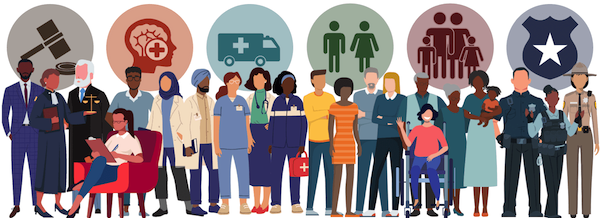Advancing mental health advocacy: Jenny Kimmel joins the CBHJ’s AOT initiative

Jenny Kimmel’s dedication to mental health care didn’t begin in a classroom or a clinic—it began at home. Growing up with parents who worked at the Oakdale Regional Center for Developmental Disabilities, she saw firsthand the impact of compassionate support for those with severe mental illness. Inspired by their work, she charted her own path into the field.
Now, with more than a decade of experience, Kimmel has joined the Center for Behavioral Health and Justice (CBHJ) at Wayne State University’s School of Social Work as manager of the Assisted Outpatient Treatment (AOT)/Courts initiative. With her background as a consultant and leader of one of Michigan’s most successful AOT programs, Kimmel brings valuable insight to the CBHJ’s mission.
In her role as manager of the AOT/Courts initiative, Kimmel will focus on increasing awareness and utilization of AOT services, addressing critical gaps in care for individuals with behavioral health needs. She aims to promote education about AOT, advocate for statewide improvements, and support data-driven research to enhance outcomes and inform policy changes.
“We are thrilled to welcome Jenny to the CBHJ. She is a recognized leader in the field, and with her extensive experience with assisted outpatient treatment programs, she will be a tremendous asset to our team,” said CBHJ Deputy Director Liz Tillander. “Having previously worked with us as a consultant, we know firsthand the expertise and dedication she brings. We look forward to the innovative contributions she will make in supporting this initiative.”
Bridging gaps
Kimmel’s career is marked by a commitment to bridging gaps in service delivery for people with serious mental illness. While earning her bachelor’s degree in psychology at the University of Michigan-Flint, she interned with Dr. Hillary Heinze, conducting research on youth experiencing homelessness. “That experience deepened my understanding of how data-driven decisions can transform lives,” Kimmel said.
Her passion for research and clinical work continued at the University of Missouri-St. Louis, where she earned her master’s degree in social work. There, she explored the intersection of mental health and the legal system—a focus that would become central to her career. Returning to Michigan, Kimmel joined Genesee Health System (GHS) as a case manager, eventually becoming the AOT program supervisor. Her leadership at GHS highlighted AOT as a crucial intervention for individuals with severe mental illness, particularly those with anosognosia—a condition in which individuals don’t recognize that they have a mental illness or their need for treatment.
“I’ve had many people tell me that the only reason they’re taking their medication is because they are court-ordered to do so,” Kimmel said. “To keep those individuals in their communities and on their medications, I feel that AOT is the least restrictive intervention, because otherwise, they could end up in the hospital or incarcerated and those situations wouldn’t fully address their mental health needs.”
Overcoming barriers
One of the biggest barriers for AOT being widely utilized is lack of knowledge or education about AOT. Often, the individuals who are going to see the need for it first are law enforcement or the families and loved ones of a person with serious mental illness, but these groups may not know what AOT is or that it’s an available option.

AOT orders can include a variety of services, such as medication management, therapy, and case management, and are designed to ensure that individuals receive the necessary care to manage their mental health conditions effectively.
The CBHJ, along with consultants, including Kimmel, created the AOT Toolkit, a resource that provides comprehensive insights into AOT processes and systems for individuals, courts, law enforcement, hospitals, mental health providers, families, advocates, and anyone else who is interested in learning more about AOT. The toolkit includes information on who is eligible for AOT, a glossary of AOT terms, videos, links to resources, and more.
“I truly believe that people with mental illness can recover and be productive members of society,” said Kimmel. “I’ve seen it through my work, but we need to support them and AOT is one of the tools that can offer support to some of these individuals to achieve that.”
Written by Sarah Freeman and edited by Jessica Best